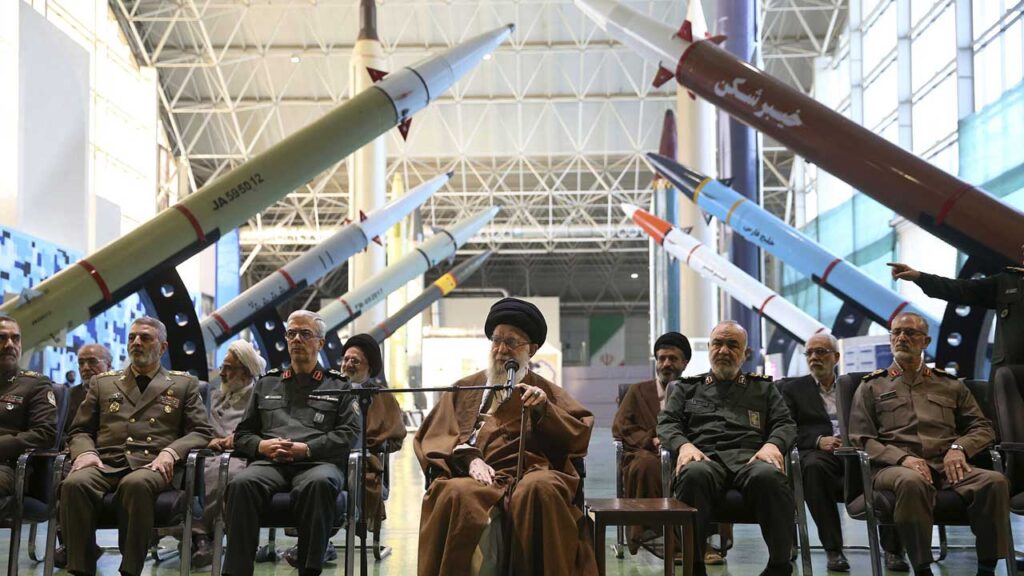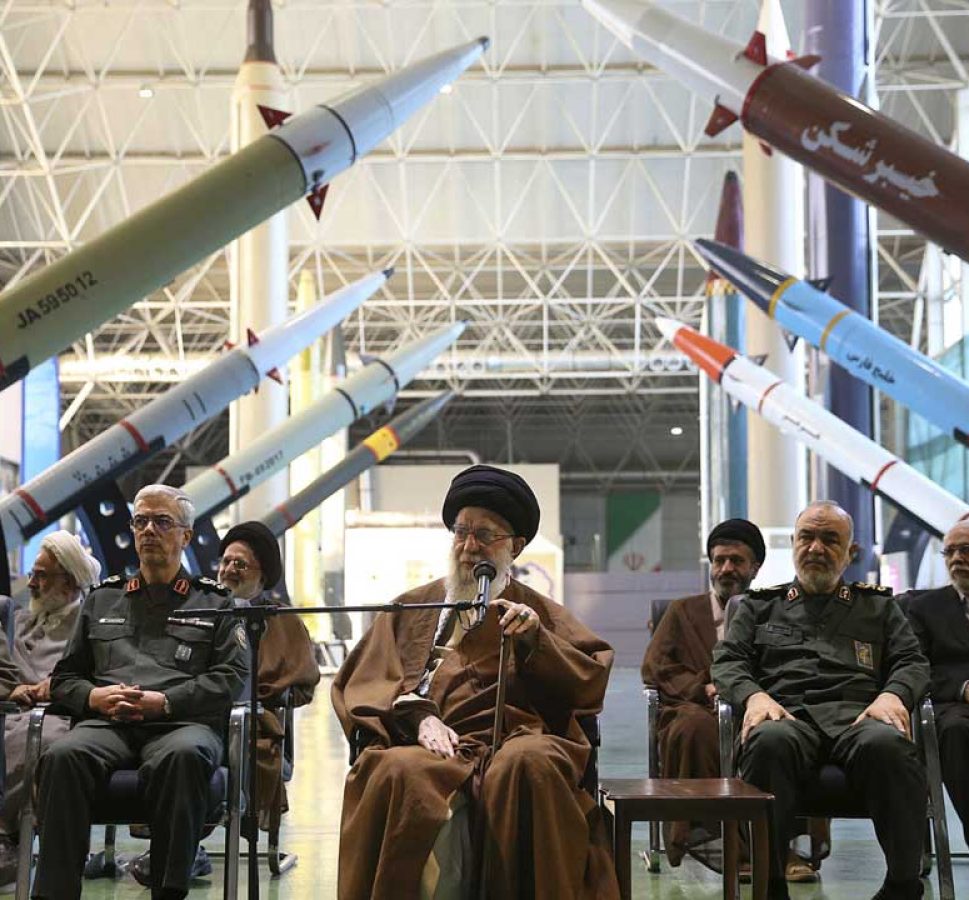
It might help Iran bolster military ties with Russia but could hurt efforts to patch up relations with the European Union.
Tehran, Iran – The United States has renewed its warnings that Iran may be preparing to provide Russia with advanced ballistic missiles for use in the war in Ukraine.
The latest assertion by the White House comes as Iran has not publicly shifted its position on the war but has recently been freed of some United Nations limitations on its military programme.
So is it actually likely Iran will provide Russia with missiles? What are the factors at play, and how does this shape the growing hostilities between Iran and the West during the war on Gaza?
What are Washington’s allegations?
White House security spokesman John Kirby said on Tuesday: “Iran may be preparing to go a step further in its support for Russia” by providing Moscow with ballistic missiles for use in Ukraine.
He alleged that in return for that support, Russia has offered Tehran “unprecedented defence cooperation”, including electronics and air defence.
Iran wants to buy billions of dollars of military equipment from Russia, including attack helicopters, radar systems and combat trainer aircraft on top of the advanced Su-35 fighter jets it has publicly said it wishes to buy, Kirby said.
Western governments said Iran has been supplying Russia with hundreds of so-called kamikaze drones that have been used in the war and have imposed many rounds of sanctions on Iranian individuals and entities in response.
Kirby said in June that Iran is also providing material support to build a drone manufacturing plant in Russia. On Tuesday, he said Iran has given Russia guided aerial bombs and artillery munitions as well.
Washington has repeatedly warned of Tehran supplying missiles to Moscow and has been met with the same Iranian response each time.
Tehran’s official stance on the war has consisted of saying its roots are in NATO’s unchecked expansion, it wants the war to end through dialogue and it supplied Moscow with drones as part of bilateral defence cooperation but months before the war began.
Will Iran give Russia missiles?
From a purely military standpoint, it would make sense for Iran to provide Russia with precision-guided ballistic missiles, according to Fabian Hinz, a military analyst at the International Institute for Strategic Studies.
“The Russians have their own weapons in this category, but they just don’t have enough as Russia and Ukraine alike have a problem with mass, and they need enormous quantities. Precision-guided munitions are always in short supply, so the more you can get the better,” he told Al Jazeera.
Hinz said it is still unclear how likely it is for Iran to actually provide the missiles, which would signal a significant chapter in military cooperation, and why it hasn’t happened yet. Political reluctance on either side or even potential legal challenges could be playing a role.
Last month, a number of UN restrictions on Iran’s missile programme expired as part of the country’s comatose 2015 nuclear deal with world powers.
Prior to that, Western parties to the accord regularly asserted that Iran was violating the UN resolution underpinning the nuclear deal by arming Russia, something Tehran dismissed. Now that barrier is gone as well.
Hinz said that beyond expanding its all-around relations with Russia, Iran has considerable incentives to boost its military cooperation, including receiving Russian money and military technology.
“Iran’s and Russia’s arms industries are somewhat complementary. The Russians, for example, have pretty decent fighter jets, which is something the Iranians can’t produce. And the Iranians, in turn, have mass-production capability for various precision-guided munitions and suicide drones that could help Russia in the war in Ukraine,” the analyst said.
What kind of missiles are we talking about?
Iran has showed its Ababil and Fateh missiles to Russian officials, including at an exhibition in Moscow in August and another in Tehran in September, which Russian Defence Minister Sergey Shoigu attended.
The Ababil ballistic missile is a tactical weapon with medium range whereas the array of missiles that fall under the Fateh category are varied and include projectiles with a relatively long range of more than 700km (435 miles), Hinz said.
“These are solid-propellant, precision-guided systems that have been proven to be very very accurate when used by the Iranians. So they are reliable, potent systems that would be useful to the Russians and would cover quite a bit of Ukraine,” the analyst said but pointed out that Russia would also require precise intelligence if it seeks to strike targets deep inside Ukraine.
What about tensions with Europe?
The US has been saying for almost a year that Iran may be preparing to give Russia missiles, but there has yet to be a major policy change on the part of Tehran, according to Abdolrasool Divsallar, an adjunct professor at the Milan-based Universita Cattolica.
“I think on the Iranian side, the calculus is that such a capability should be sent to the Russians in case they can provide Iran with more effective weapons, and I think the Russians have not yet done that, as we have seen in the case of the Su-35s,” he told Al Jazeera.
Divsallar said Iran is now diplomatically engaged with European actors on Israel’s war on Gaza and would not want to escalate its gradually rising tensions with the European Union now.
“Providing offensive capabilities to Russia will exactly cause that escalation, and the Iranians don’t want that at this moment,” he said.
Iran may be using military visits with Russian officials to showcase its military assets and also as sort of a “bargaining process” to persuade Moscow to provide it with more advanced arms, the analyst believes.
“So my assessment is that this is not going to take place now. There are both political reasons – on the EU-Iran level –and strategic reasons between Russia and Iran that are not in favour of such a decision. Besides, previous rejections by Persian Gulf states of such a thing and Russia’s concerns regarding such rejections and its implications for Iran-Saudi relations are all factors that remain unchanged.”






